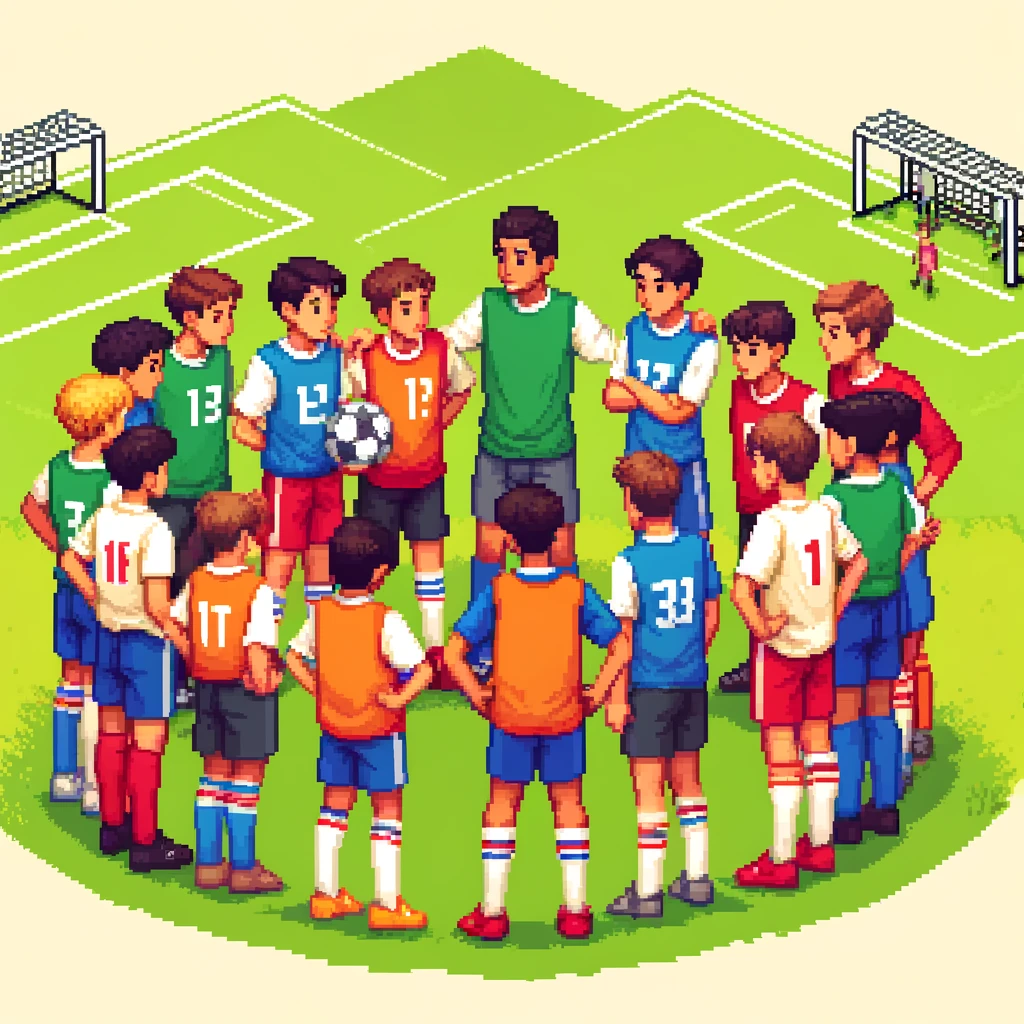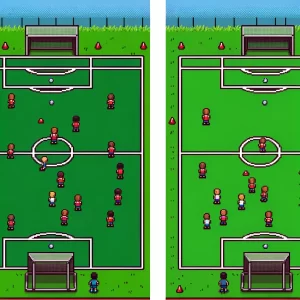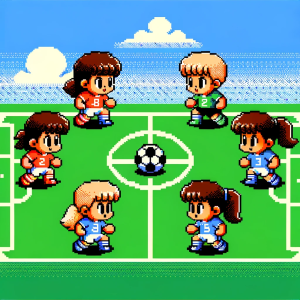
The Half-Time Talk’s Impact on Small-Sided Games
Half-time is more than just a chance to catch a breath—it’s a critical moment for strategy and reflection. A recent study has shed light on how small-sided games (SSGs) and player-led discussions during these breaks can impact the development of young soccer players’ technical and tactical skills.
Small-Sided Games: A Closer Look
Small-sided games are designed to replicate the demands of a full soccer match, but on a smaller scale. Typically involving fewer players and a smaller pitch, SSGs provide a concentrated environment for players to hone their skills. These games are renowned for their ability to boost technical proficiency, tactical awareness, and physical conditioning.
In this study, 42 under-15 male amateur soccer players were divided into six groups. Over four sessions, each group played two sets of 15-minute SSGs, with some groups incorporating self-regulated learning discussions during the breaks. The aim was to explore how these discussions impacted decision-making and technical actions like ball control, passing, and shooting.
The Experiment: A Deep Dive
Each group of players engaged in SSGs under different conditions. Some groups were encouraged to self-regulate their learning by discussing their gameplay and strategies during the five-minute breaks between sets. Other groups played without these discussions, allowing researchers to compare the outcomes.
Technical actions, including balls won, balls received, balls lost, shots, and goals, were meticulously recorded using digital cameras. The results were then analyzed to determine the impact of player discussions on their performance.
Key Findings: The Power of Group Dynamics
The study found that player-led discussions did not significantly impact most technical actions. However, there was a notable exception: the group that engaged in discussions showed a significant increase in the number of shots taken compared to the group that did not. This suggests that while self-regulated discussions might not enhance all aspects of technical performance, they could foster a more aggressive, goal-oriented mindset.
This aligns with previous research emphasizing the importance of verbalization and reflection in sports. By discussing their experiences and strategies, players may develop a deeper understanding of the game, leading to more decisive and confident actions on the field.
Why This Matters for Soccer Coaching
These findings have intereesting implications for soccer coaching and player development. Encouraging young players to engage in self-regulated learning and discussions can cultivate a more thoughtful and analytical approach to the game. Coaches might consider integrating structured discussion periods during training sessions to foster these skills.
Moreover, the increase in shot actions among the discussion groups highlights the potential for such discussions to improve offensive play. Coaches could leverage this by focusing discussions on offensive strategies and shot-taking techniques, potentially leading to more effective goal-scoring opportunities.
Future Directions: Exploring Coach Interventions
While the study provides valuable insights, it also opens the door for further research. The impact of coach-facilitated discussions during SSGs remains an intriguing area to explore. By combining player discussions with expert guidance, it might be possible to amplify the benefits observed in this study.
Let us know your thoughts in the comments!
- What techniques do you think are most effective for improving a young player’s decision-making skills on the field?
- How do you believe coach-led discussions during half-time could further enhance player performance in small-sided games?
Conclusion: A New Perspective on Soccer Training
This study underscores the potential of small-sided games and player discussions to enhance young soccer players’ development. By fostering an environment of self-regulated learning and reflection, coaches can help players not only improve their technical skills but also develop a more strategic and analytical mindset.
As the world of soccer continues to evolve, incorporating these findings into coaching practices could play a crucial role in shaping the next generation of soccer stars.
Advance Your Soccer Knowledge:
Join the elite circle of soccer aficionados who appreciate the game beyond the field. ‘This Week in Soccer’ bridges the gap between complex soccer analytics and practical application. By subscribing to our newsletter, you’ll gain access to exclusive content, infographics, and forums that will enrich your understanding and love for soccer. Embrace the science and strategy of soccer today. Subscribe and transform your perspective!
About the Author
Jon Scaccia is a youth soccer coach and translational scientist. He has worked with the Exeter United Soccer Club for over five years, focusing on U5 development. In his day job, he works in data evaluation and implementation science.



